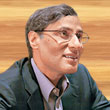road rage
2018/06/28 04:12:16 網誌分類: 生活
The expression “road rage” means anger or even violence by one driver towards another. Road rage in the US sometimes becomes violent because people are allowed to carry guns. An intersection is where two or more roads cross or join each other. Nowadays, there is also air rage because more people can afford to fly. The expression “air rage” means violent or angry behavior by a passenger on an airplane. Air rage is often caused by the stress of air travel. I have read many media reports of air rage by mainland tourists. The word “stress” has several meanings but used this way it means pressure, tension, or anxiety.
I was shocked last week to read media reports of a passenger biting off the thumb of another passenger on an MTR train. The two men became enraged (very angry) and fought after one accused the other of bumping into him on the crowded train. The word “bump” has many meanings but used this way it means collide or knock against. It was the first case of violent MTR rage. Hong Kong people have a lot of stress. They live in tiny flats in an overcrowded city. MTR trains are always overcrowded. I have seen cases of MTR rage. Luckily, they were not violent. But I worry MTR rage could become violent if trains get even more overcrowded.
*****
許多駕駛者都曾遇見過,或自己親身經歷過「路怒症」(road rage)。我第一次經歷路怒(road rage),是多年前在華盛頓特區做新聞工作者時。當時道路非常繁忙,人們駕車去做聖誕前的購物。我在一個沒有交通燈的交叉路口(intersection)停下,等待輪到我的時候便駛出。可是有一名司機對着我叫喊(yelled),說他比我先到達交叉路口(intersection),因此該到他駛出。我不理會他,因為我知道是我先抵達,他卻開始追着我。他很高大,看起來非常憤怒,於是我加快速度(sped up),但他又加速(sped up)。幸運地,我在繁忙的交通中甩掉了他。
習語“road rage”是指道路駕駛者向另一名駕駛者發怒甚至暴力對待。在美國路怒症(road rage)有時甚至演變成暴力事件,因為人們獲許攜帶槍械。An intersection就是兩條或多條道路的交匯處。時至今日,因為有更多人付得起錢乘搭飛機,也開始出現「空怒」(air rage)了。習語“air rage”是指一名乘客對航班的暴力或憤怒行為。空怒(air rage)通常是源於航空旅遊所帶來的精神壓力(stress)。我讀過許多內地遊客空怒(air rage)的傳媒報道。Stress有幾個意思,在這裏解作壓力、緊張或焦慮。
上星期有乘客在港鐵列車上咬斷另一名乘客的拇指,我讀到這則新聞時相當震驚。一個男人指責另一個男人在繁忙車廂上碰撞到(bumping)他,二人就勃然大怒(enraged)然後扭打起上來。Bump有許多意思,在這裏指碰撞。這是首宗暴力的「鐵怒」(MTR rage)事件。香港人有很大的壓力(stress),在過於擠逼的城市中住在狹小的單位內。港鐵又時時人滿為患。
我也遇見過不少「鐵怒」(MTR rage)事件,幸而那些都不是暴力事件。然而若港鐵車廂再擁擠一點,我擔心「鐵怒」(MTR rage)會演變成暴力事件。
mickchug@gmail.com
中譯:七刻
Michael Chugani 褚簡寧

回應 (0)
我要發表

